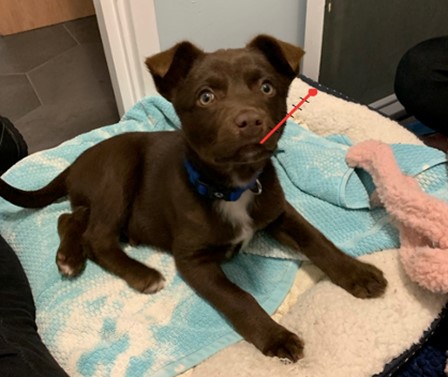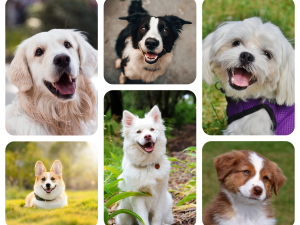
Side Effects of Chemotherapy in Dogs
By Jessica Pace
What is Chemotherapy?
Chemotherapy is a drug treatment designed to kill fast-growing cells in the body, such as cancer cells. Cancer cells can grow extremely quickly and multiply much faster than normal body cells. The goal of chemotherapy is to control the rapidly progressing disease, prevent spread, restore deteriorated function and to provide a good quality of life during remission.
Although chemotherapy is a very common treatment for a wide variety of cancers, there are risks of side effects from the treatment. As humans, we associate chemotherapy with nausea, hair loss and lack of energy, however, chemotherapy in animals presents a very different reality.
Chemotherapy does not necessarily result in side effects in animals. The doses of drugs and treatment schedules are designed to provide the least amount of discomfort possible, without compromising on the defence against the disease. Most animals will not even know that they are sick, as side effects only impact about 20-30% of those that receive effective treatment.
Despite this, it is important to know the possible side effects, as to be able to act appropriately if they do arise. As a pet owner, you should carefully watch your furry friend and if any sign of illness begins to show, they should be taken to the veterinarian.
The reason side effects of chemotherapy may arise is due to the way the drugs also interact with normal body cells, as well as the cancerous ones. The most sensitive of these cells are found in the blood, gastrointestinal tract, skin, and reproductive system.
Common Side Effects
Loss of appetite and vomiting
Loss of appetite is usually most common 2-5 days after treatment. You should tempt your pet with their favourite foods and slightly warm them to increase palatability. If this is accompanied by nausea and vomiting, try withholding food and water for 12 hours, before reintroducing water. If the vomiting becomes repetitive or contains blood you should seek veterinarian advice.
Diarrhoea
Although this may occur, it is rarely a concern. If diarrhoea is present, feed your dog bland foods such as boiled chicken and rice. Once the symptoms have subsided you can begin to reintroduce your dog’s normal diet slowly. Diarrhoea is also dehydrating, so ensure a constant, fresh supply of water is available to them. Check your pet’s gums, they should feel soft and moist. If the diarrhoea becomes bloody, watery and persists for mor than 24 hours, seek veterinarian attention.
Low white blood cell count
Following treatment, the white blood cell count is expected to drop below normal levels. This should return to normal quickly after treatment. It is important to keep an eye on your pet as if these levels drop too low, this will cause them difficulty with fighting infections. If symptoms such as a temperature (above 39˚C), vomiting, diarrhoea, and poor appetite persist 7-21 days following treatment, this may indicate that your pet has developed an infection. If you notice these symptoms, you should contact your veterinarian and they may conduct a blood test to check the white blood cell count and prescribe antibiotics to fight any potential infection.
Bladder irritation
Anti-cancer drugs may also lead to irritation in the bladder, known as cystitis. This may lead to blood in the urine, called haematuria or haemorrhagic cystitis. Your pet may show signs of irritation when passing urine and urinate small amounts, frequently. You should see your veterinarian as soon as possible. A urine sample will be required to check for a reason, such as infection.
Above all else, as a pet owner you should be aware of your dog’s behaviours and reaction to the chemotherapy. If anything does go wrong, speak to your veterinarian.
References
- https://wearethecure.org/learn-more-about-canine-cancer/canine-cancer-library/common-chemotherapy-side-effects/
- https://www.ethosvet.com/blog-post/chemotherapy/

